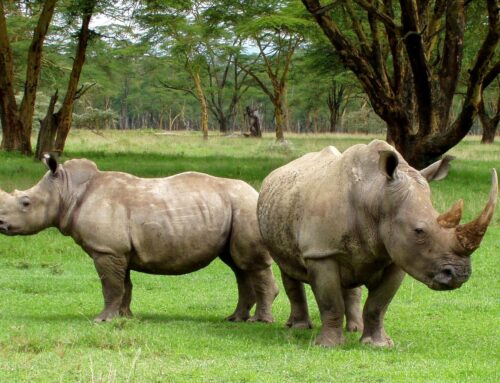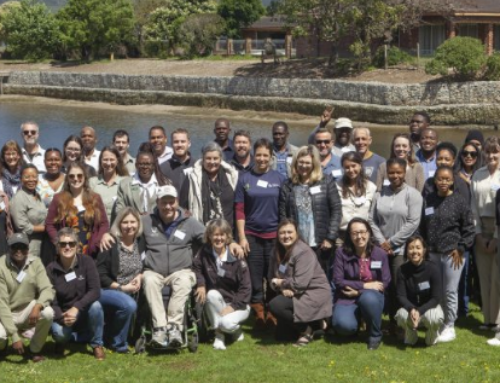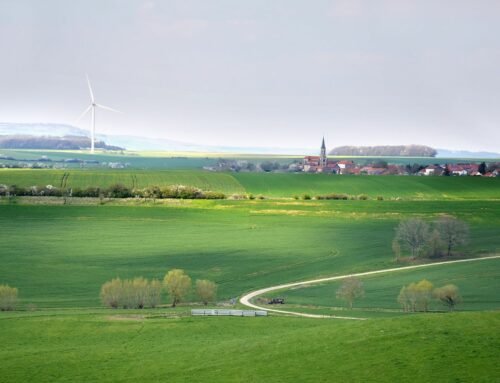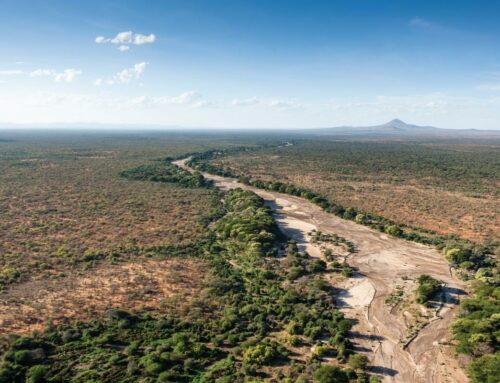Project background
Southern Africa has significant biodiversity and natural resources and a robust and evolving legislative framework for their transboundary management. However, the capacity to manage the region’s rich natural resources varies widely from country to country. National policies often lack harmonisation across countries and between sectors, and biodiversity-rich ecosystems are characterised by poor and vulnerable human populations who lack sufficient benefits and incentives for sustainable resource management. In the face of these challenges, as well as increasing water scarcity and uncertainty related to future change (including climate change), the region needs to assess its management of transboundary resources from a social-ecological perspective and consider the types of strategies that could promote improved resilience and governance of biodiversity and natural resources across southern Africa.
The Okavango River Basin is recognised as an internationally important site of biodiversity. It hosts two Ramsar sites, or wetlands of international importance: the Okavango Delta in Botswana and the contiguous Bwabwata-Okavango Ramsar Site in Namibia. The Okavango Delta, one of the largest inland deltas and a World Heritage Site is a popular tourist destination that contributes US$1.5 billion to the GDP in Botswana. Tourism is the second-largest source of foreign income for Botswana and there are many protected areas in the basin, including part of the world’s largest TFCA, the Kavango-Zambezi Transfontier Park (KAZA TFCA). This TFCA spans an area of approximately 520 000 km2 straddling five countries (Angola, Botswana, Namibia, Zambia and Zimbabwe), and includes national parks, game reserves, forest reserves, community conservancies, and game/wildlife management areas.
The Limpopo River Basin is a complex transboundary system that supports more than 18 million people across the riparian states of Botswana, Mozambique, South Africa, and Zimbabwe. It is exceptionally rich from a biodiversity point of view and supports a significant tourism industry. The Great Limpopo Transfrontier Park includes the Kruger National Park (South Africa), Limpopo National Park (Mozambique) and Gonarezhou National Park (Zimbabwe). It currently comprises 35 000 km² but is planned to cover 100 000 km² once complete. The Greater
Mapungubwe Transfrontier Conservation Area also falls within the Limpopo Basin, and includes an aggregation of privately-owned land in Botswana, a patchwork of private land, national parks and state land in South Africa and the Tuli Circle Safari Area in Zimbabwe, creating a contiguous area of protected land totaling some 6 000 km².
The Resilient Waters Project, funded by USAID Southern Africa, aims to build more resilient and water secure Southern African communities and ecosystems through improved management of transboundary natural resources and increased access to safe drinking water and sanitation services. To achieve this objective, Resilient Waters collaborates with regional institutions, including river basin organisations (RBOs) and Transfrontier Conservation Areas (TFCAs), to examine the critical intersection of social-ecological systems. Resilient Waters focuses on the Okavango and Limpopo river basins, with the aim of improving transboundary water security, increasing access to safe drinking water, strengthening ability of communities to adapt to climate change, and conserving biodiversity and ecosystems.
Opportunity for Masters student
It is increasingly acknowledged that for TFCAs to be resilient in conserving biodiversity into the future, they need to equitably benefit the people that bear the costs of their existence; namely the communities that reside within and alongside them. It is therefore important to identify the key local, national, and regional factors that enable (and constrain) communities to engage in wildlife-based livelihoods and benefit from their location within or alongside TFCAs.
We seek a Masters student who is interested in addressing one or more of the following questions for the KAZA, Limpopo, or Mapungubwe TFCA:
• What is the range and nature of tourism enterprises operating in the TFCA, and who accrues the socio-economic benefits generated by these enterprises?
• How diverse are these enterprises and how might they diversify?
• Have private-public-community partnerships been introduced and effectively explored?
• What are the differences in policy and legislation between the participating countries in relation to the management, use, and benefits that may be derived from wildlife by those living on the land within and alongside the TFCAs?
• What ecosystem services and disservices are provided by the TFCA, at what scale are these services and disservices accrued, and by whom?
Call for applications
We seek a motivated individual to contribute to assessing the social-ecological resilience of southern African TFCAs, by identifying who accrues the benefits and costs of TFCAs and why. This project will involve synthesising existing research on the topic in the region, as well as either a policy review or on-the-ground engagement with communities, depending on the interests of the student. The ideal candidate should have a strong academic track-record and analytical skills, possess a keen interest in sustainability issues and conservation science, an interest and ability to integrate across the social and natural sciences, and be an independent thinker who is open to collaboration and keen to participate in the events and activities of the CST. Experience in conducting interviews and running focus groups will be advantageous.
The successful candidate will be supervised by Dr Hayley Clements and based at the CST, Stellenbosch University. A co-supervisor will be identified based on the specific interests of the student, which will also determine which department the student registers within (options include the School of Public Leadership, Geography, or Conservation Ecology and Entomology). Successful candidates are expected to commence their degree at Stellenbosch University in January 2020.
Bursary value
Masters full-time over 2 years: R100 000 p.a., excluding field costs.
Requirements
Applications are invited from Southern African nationals from the following countries: Angola, Botswana, Lesotho, Mozambique, Namibia, South Africa, Zambia, and Zimbabwe.
All students applying for a Masters degree should have completed a three-year undergraduate degree and one-year Honours degree, or equivalent to be eligible. All candidates should show evidence of strong scholarly performance and commitment to publishing. Stellenbosch University will only accept students who meet the minimum academic requirements from recognised higher education institutions.
Students need to be able to communicate and write in English. Preference will be given to students who can work independently, are well organised, and who will be willing to participate in the regular activities of the CST at Stellenbosch University.
To apply
Interested candidates should send:
- a motivation letter detailing why you are well-suited to undertake this project, including your previous experience, your general area of interest, as well as which aspects of the project most interest you and your ideas regarding research on these aspects,
- a 2-page CV that includes your academic record, previous work experience, any scientific publications on which you have been an author, and the names and contact details of at least two academic referees,
- transcripts of university-level academic qualifications,
- at least one example of recent written work (e.g. a paper, report, thesis chapter).
Applicants possessing the prescribed minimum qualifications are invited to submit the above required documents electronically with a subject line “Wildlife Livelihoods Masters research” (for Masters applicants) to Dr Waddell at CST: joywaddell@sun.ac.za.
We encourage you to submit your application as soon as possible, but latest by Monday 30th September 2019.
CST and Stellenbosch University reserve the right to not fill the post if there are no suitable candidates who meet the requirements.












